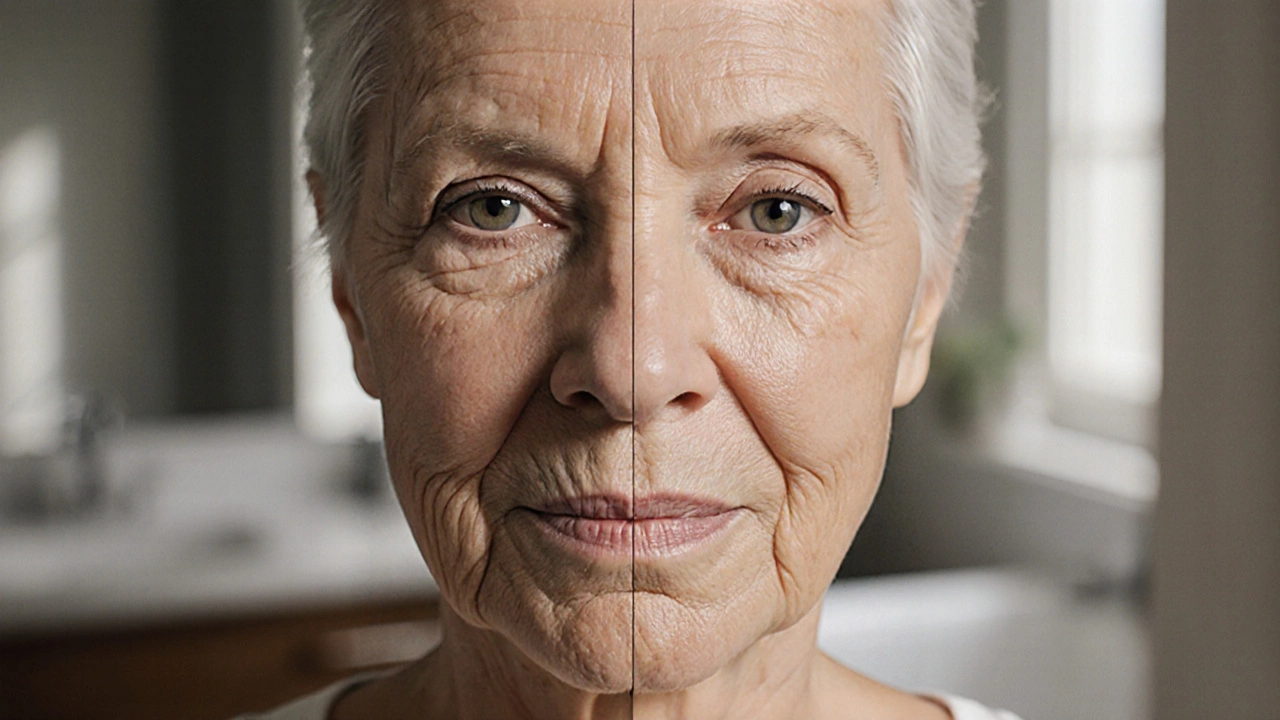Retinol: Your Guide to Brighter, Younger‑Looking Skin
When you hear retinol, the skincare world’s most studied form of vitamin A, known for speeding up cell turnover and smoothing fine lines. Also called retinyl palmitate, it sits at the heart of many anti‑aging formulas and is a staple for anyone wanting clearer, firmer skin.
Retinol is a direct derivative of Vitamin A, a nutrient that fuels collagen synthesis and supports skin elasticity. The stronger the vitamin A source, the more it can boost collagen fibers, leading to a noticeable lift in skin texture. In practice, this means you can see a reduction in wrinkles within weeks when you pair the right retinol strength with a balanced diet rich in carrots, sweet potatoes, or supplements.
Because of its power, retinol sits squarely inside the broader anti‑aging strategies that aim to slow visible signs of time, from fine lines to uneven tone. The anti‑aging benefits of retinol are amplified when you maintain consistent use and avoid sun exposure that can degrade the ingredient. Think of it as a key player that works best when other anti‑aging habits—hydration, antioxidants, and sunscreen—are already in place.
Integrating retinol into a daily skincare routine, means timing, layering, and product compatibility matter. Most experts recommend applying retinol at night after cleansing and before moisturizing, letting it absorb fully before any heavier creams. Pair it with a gentle cleanser and a humectant‑rich moisturizer to counteract potential dryness. The routine’s success often hinges on a gradual introduction—starting with a low concentration two to three times a week and building up as your skin adapts.
Practical tips keep retinol effective and safe: always use a broad‑spectrum sunscreen during the day, because UV rays can accelerate retinol breakdown and increase irritation. If you experience redness, scale back frequency or switch to a milder retinoid, such as retinaldehyde, before moving back up. Remember, retinoids and other active ingredients (like acids) may not play well together, so spacing them out prevents over‑exfoliation. By respecting these rules, you maximize collagen production while minimizing side effects.
What’s Next?
Below you’ll find a curated mix of articles that dive deeper into the science behind anti‑aging drinks, vitamin deficiencies that affect skin sagging, and how to pick the right skincare brand for mature skin. Together, they paint a full picture of how retinol fits into a holistic approach to health and beauty, helping you make informed choices for a radiant, confident look.

